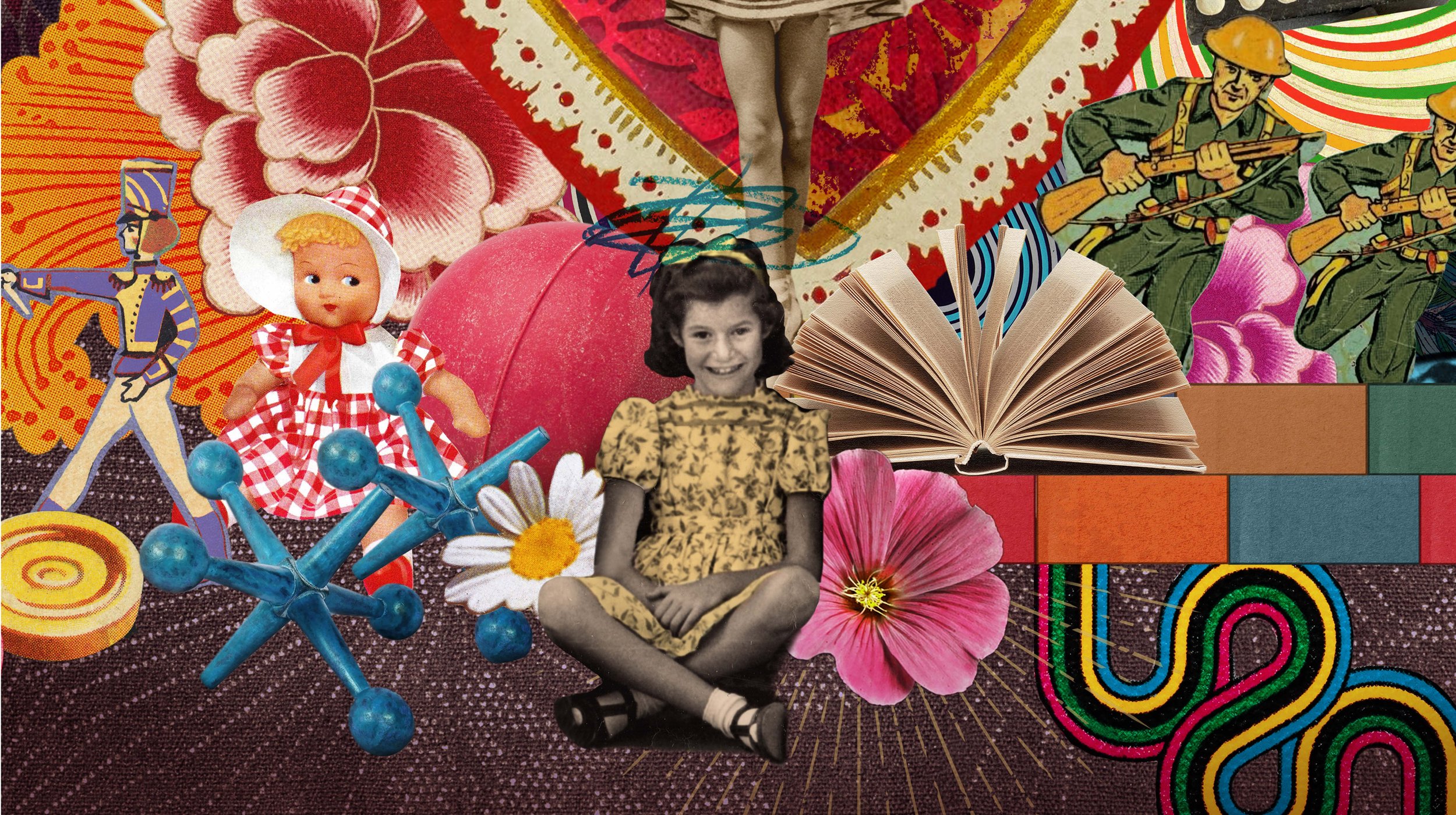How 'Judy Blume Forever' uses animation to illustrate taboo topics
Directors Davina Pardo and Leah Wolchok break down the cool animated collages in their new doc.
Watching Judy Blume read excerpts from her own novels aloud is one of the standout pleasures in the documentary Judy Blume Forever. And while it's delightful to hear the beloved author's interpretation of key passages from classics like Deenie, Blubber, and more, these scenes are elevated by Andrew Griffin and Martin O'Neill's fanciful animated collages.
Like Blume's work, these animated interludes are funny, playful, and especially honest when it comes to the sensitive matters of menstruation and sex. The animation depicts the former with formations of dancing tampons and pads, while literal birds and bees serve as winks at the latter.
Judy Blume Forever directors Davina Pardo and Leah Wolchok knew from the start of making the film that they wanted excerpts from Blume's work to play a large role. However, they wondered how to depict them on screen.
"Judy's writing is such an important part of the film, and establishing her voice is such an important part of the film," Pardo told Mashable in a Zoom interview. "How do we want to visualize these?"
Pardo and Wolchok discovered Griffin and O'Neill's work on Showtime's docu-series Love Fraud. Their animated collages, with their tactile and nostalgic qualities, immediately reminded Pardo and Wolchok of the pitch deck they had made when they were first developing the film.
"So we reached out to [Griffin and O'Neill] and said, 'Would you be interested?' And they said, 'You know, we're not so familiar with Judy Blume's work. We're middle-aged men living in the UK who didn't read her books, but we have daughters and it sounds fascinating. Let's give it a go!'" Pardo explained. "It was a really, really great collaboration."
Griffin and O'Neill's prior collage work already greatly aligned with what Pardo and Wolchok were looking for style-wise, but for Judy Blume Forever, they also drew inspiration from the aesthetics of original Blume book covers. Pardo and Wolchok also sent them images from the film's interviews, which took place against backdrops of vintage wallpaper, to give them a sense of the film's overall look.
As for the process of getting Blume's words animated onscreen, it all began with the incredibly difficult choice of which books to choose. Out of all of Blume's novels, which were most emblematic of Blume's life?
"We wanted the books to tell a coming-of-age story of Judy, of her characters, and of her readers," Wolchok told Mashable in a Zoom interview. "So we wanted a book about childhood, a kid on the cusp, adolescence, adulthood, and beyond."
From there, Pardo and Wolchok sent Griffin and O'Neill a list of the excerpts, as well as their thoughts about what the excerpts were about, how they fit into the movie, and what tones and themes they wanted the animation to evoke. They also provided some ideas about how to visualize Blume's work, which, given its subject matter, could sometimes prove daunting.
"[Griffin and O'Neill] were a little uncomfortable at first that we wanted to see some blood on underwear," Wolchok said. "They were like, 'Can we just make the color blue instead?' We were like, 'No, that's what they use in the commercial for pads in the '80s, when you weren't supposed to know it was blood. It was that creepy blue gel.'" However, Wolchok and Pardo noted that many of the animated sequences we see in the film were Griffin and O'Neill's ideas, as they quickly became acclimated to the source material.
What's so wonderful about the animation in Judy Blume Forever is that it evokes the essence of her work without necessarily giving us a one-to-one recreation of each excerpt. As Blume reads a bullying scene from Blubber, animation takes us not just to the school bathroom where the confrontation takes place, but to the deep ocean where orcas accost a blue whale. In the film's opening sequence, which centers on a sex education class from Deenie, the mention of masturbation sends a cheeky burst of flowers blooming across the screen.
These visual metaphors help enhance our ideas of Blume's work, but importantly, they never try to supersede out own views and memories of her novels. For Pardo and Wolchok, this aspect of the animation was always a crucial part of Judy Blume Forever.
"One of the challenges with animating the work is you don't want to be too specific, because people have a really personal connection to the books," Pardo explained. "Some people have an image of what the characters look like, and we didn't necessarily want to disrupt that image."
She continued: "We want to leave people with their own personal idea. So it was more about capturing the tone and the feel of a character and the voice of the book, rather than illustrating exactly what's happening in the scene. And [Griffin and O'Neill's] style lends itself really well to that."




